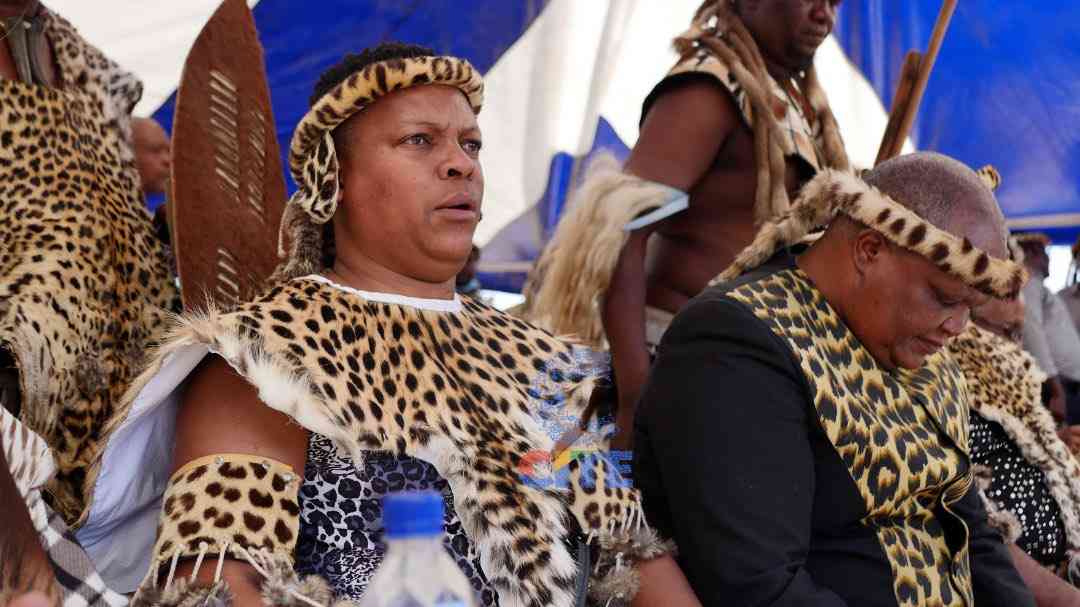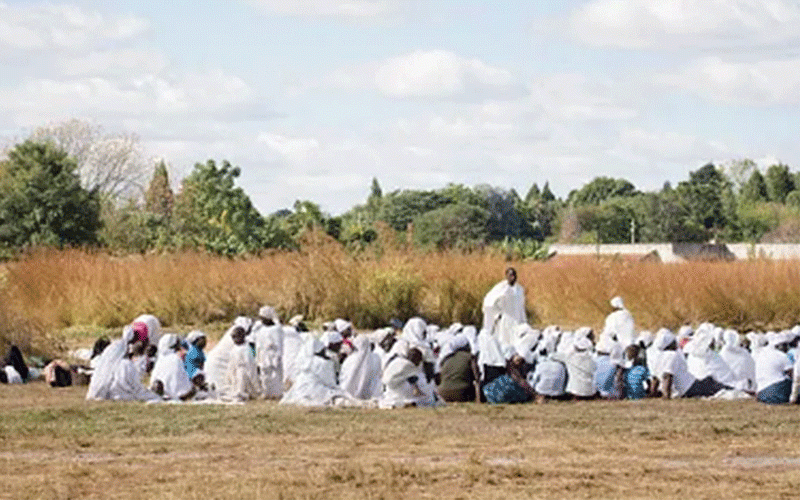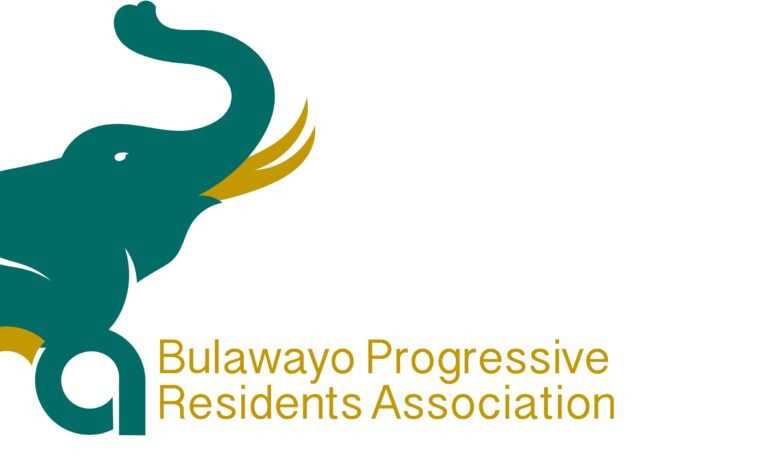
A storm is brewing in Matabeleland in the wake of Local Government and Public Works minister Daniel Garwe’s public rebuke of Bulawayo mayor David Coltart for hosting King Bulelani Lobengula Khumalo at his offices on April 21, which left Ndebele cultural activists seething with anger.
Garwe described the meeting as “unlawful and wrongful,” and referred to Khumalo as a “pseudo character.”
He cited Section 283(a) of the constitution, along with Sections 3(1) and (2) of the Traditional Leaders Act, which state that the appointment or removal of traditional leaders must be done by the president on the recommendation of the provincial assembly of chiefs.
Garwe, who attracted criticism from cultural activists and various stakeholders, demanded that Coltart explain why he hosted Khumalo.
In response, Khumalo’s spokesperson, Bornwell Khumalo, issued a scathing rebuke, accusing Garwe of being driven by emotion rather than fairness and inclusivity.
“We think we were targeted because the government is being overwhelmed by its own emotions and knows that what they are doing is not right. That’s why they are on us,” Bornwell said.
“Again, the Mambo project — somehow we think it was a political plan to divide and rule the Mthwakazi nation.
“Why? Because during their time, a lot of people were there and it looked like it was financed by the government.
- Benzema confident Real will reach UCL final
- Rigging exposes widening Mnangagwa, Chiwenga rift
- Health talk: Mental health disorders and demolitions in Zimbabwe
- Munatsi family speaks on banker’s shock death
Keep Reading
“But then the project was a big flop and it did not work.”
The Lozwi clan in 2019 installed Mike Moyo as king of the Mambo dynasty as part of plans towards reviving its monarchy.
The ceremony was held in Mawabeni, Matabeleland South province and President Emmerson Mnangagwa’s government did not stop the event.
The Mambo Dynasty Trust, which was formed in July 2015, has been pushing for the revival of the Mambo kingdom, which collapsed in 1835.
The last Mambo Tjilisamhulu was installed in 1835.
Bornwell said they will not allow politicians to divide the people on ethnic grounds.
“If we are divided, we continue to suffer,” he said, adding that Ndebeles were being treated like second class citizens.
“We are not treated like people, who belong to this country yet others are being embraced.
“We are looking for answers on what exactly is the cause for the Mthwakazi nation to be treated like this.
“We are not happy with the treatment we get and if this letter is from the minister, speaking words that insult our king, then we are not happy.”
Bornwell said they had no interest in politics but reviving the Mthwakazi culture and its traditional norms and values.
“But then when we try to do that, which we feel is our tradition, culture — we then ask, why are we treated like this?,” he asked.
“All we want is freedom to practice our culture, freedom to celebrate commemorations like those of King Mzilikazi and whatever we do.
“That is what we fought for — not to be denied the right to do things that belong to our culture and tradition.”
“We need to be respected like human beings, to practice our culture in peace.”
However, Bornwell said they will continue engaging authorities on the matter.
“There is no need to insult each other,” he said.
“The engagement will give us a solution for the way forward.
“Since we are being attacked left, right and centre, it’s time to stand up for what is ours.
“We need to take note that being united is important in times like these — this will make us conquer.
“We need to show them on September 6 when we host the King Mzilikazi commemorations that we are Mthwakazi, and that we have nothing to do with politics.”
He said no one was being forced to partake in cultural ceremonies and other activities to do with the Mthwakazi people.
“We have support and we will not fail. We want to do our culture and those who are not part of us should leave us alone and let us do our culture,” he said.
Bornwell said this year’s King Mzilikazi commemorations were going ahead as planned on September 6.
“We want to tell the Mthwakazi nation that there is no Trust or family that will stop them from celebrating King Mzilikazi,” Khumalo said.
“King Mzilikazi is bigger than a family — be it first, middle, or last born.
“King Mzilikazi belongs to the Mthwakazi nation, not to a family or Trust. “
King Mzilikazi broke away from King Shaka Zulus' kingdom in 1821 and led a migration to present day Zimbabwe where he established the Ndebele nation in the southwest.
Mzilikazi and his son King Lobengula left a lasting legacy in Zimbabwe’s history, especially in Bulawayo.
Their influence is evident in the numerous suburbs, schools, roads, and public facilities named after them, their family, and key figures of the Ndebele nation.
Examples include suburbs like Matshobane, Khumalo, Lobengula, Famona, Njube, Nguboyenja, Nkulumane, Magwegwe, and Gwabalanda, as well as schools such as Mzilikazi, Lobengula, and Lozikeyi.
Mbuso Fuzwayo, secretary general of local pressure group IbhetshuLikaZulu, voiced strong concern over what he called government double standards.
“When Ndebeles want to practice their culture, they are being denied yet we have seen government-assisted activities on the coronation of King Mambo, and we have seen King Munhumutapa participating in government activities,” Fuzwayo said.
He added that chiefs from all over Zimbabwe went to pay homage to King Mambo in Mawabeni with state assistance.
“ We have even seen King Munhumutapa going to Njelele with the active assistance of Zanu PF, who wrote to national parks and other concerned officials to receive him,” he said.
“Last year, he was seated in the VIP tent in Buhera during Independence Day celebrations.
“It’s shocking that they indicate left and turn right yet when it is Matebele, they raise issues of the constitution — but everyone knows the kingdom was taken by colonialists.”
Fuzwayo said Garwe was behaving like a colonialist clerk.
“It’s not surprising, but people are clear — they want their king,” he said.
“Anything else doesn’t promote nation building. Denying a people the right to practice their religion and culture can lead to the disintegration of the country.”
Effie Ncube, a Bulawayo-based commentator, said the mixed signals from authorities were creating a governance crisis.
“This has led to a situation where there doesn’t appear to be an established and universally applicable policy and legal position,” Ncubesaid.
“The varying positions tailored to specific individuals by officials bring in irrelevant predispositions and personal beliefs.
“This approach divides the nation and creates a perception of bias.”
Ncube said this selective application erodes public trust and confidence in public institutions.”
“If the issue is the constitution, then it should be applied equally to all situations and individuals,” he said.
Local Government and Public Works ministry spokesperson, Gabriel Masvora, said Garwe’s letter had been misunderstood and was not ethnically charged.
“In that letter, there is no mention of the word Ndebele, so I am trying to run away from stereotyping people because of ethnicity,” Masvora said.
“That letter is clear — it’s addressing the kingship issue, which is not there in the country’s constitution.
“If you Google, your own paper has written about another person who masqueraded as King Munhumutapa and was even arrested.”
Masvora said the constitution does not recognise kingships.
“So, in short, the letter simply reminds the mayor that there is no official in Zimbabwe identified as king,” he said.
“That applies to everyone across the country, who might masquerade as king. In simple words, we are simply saying our constitution has no king.”










